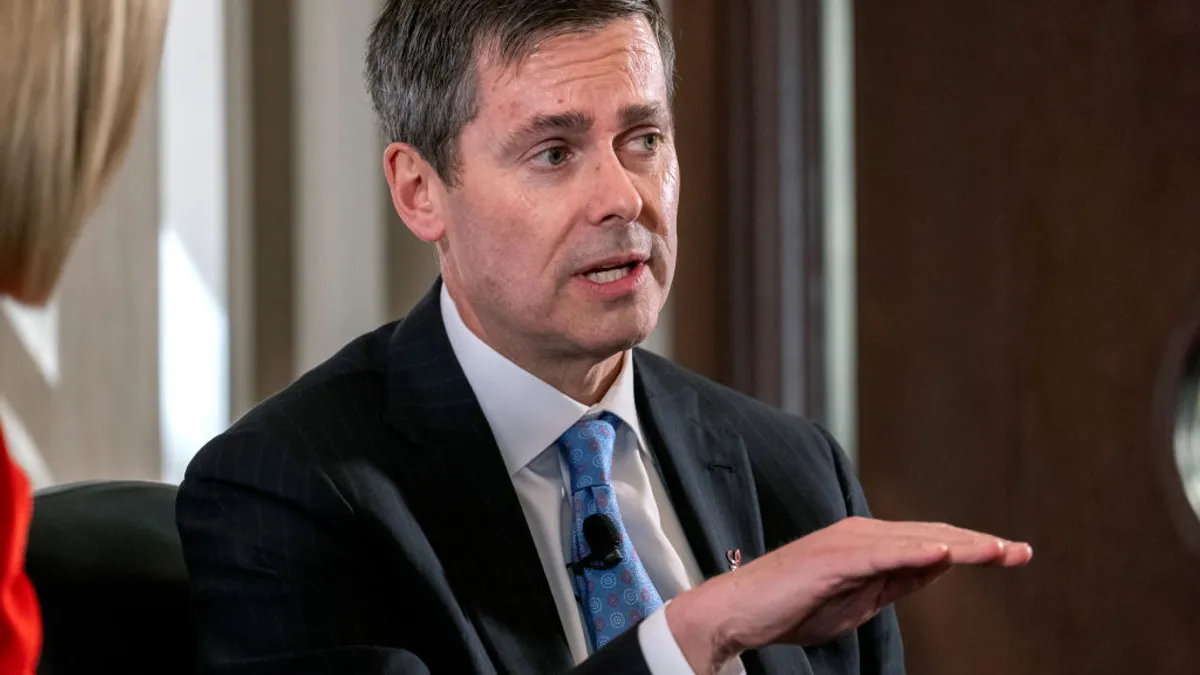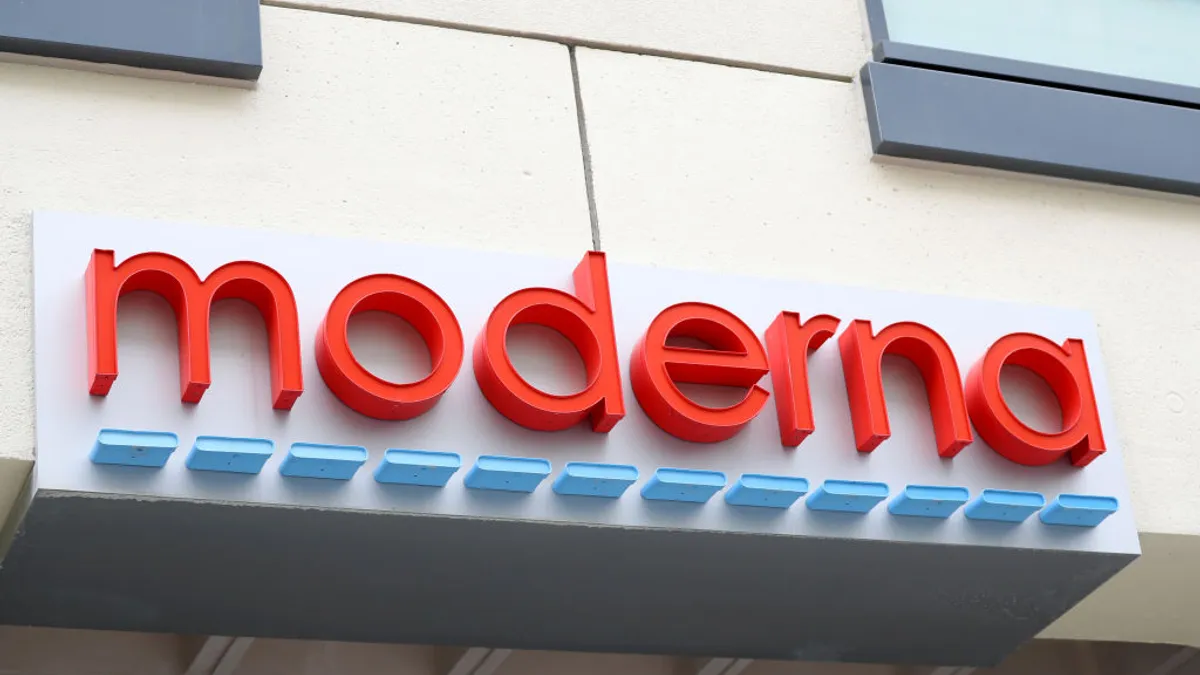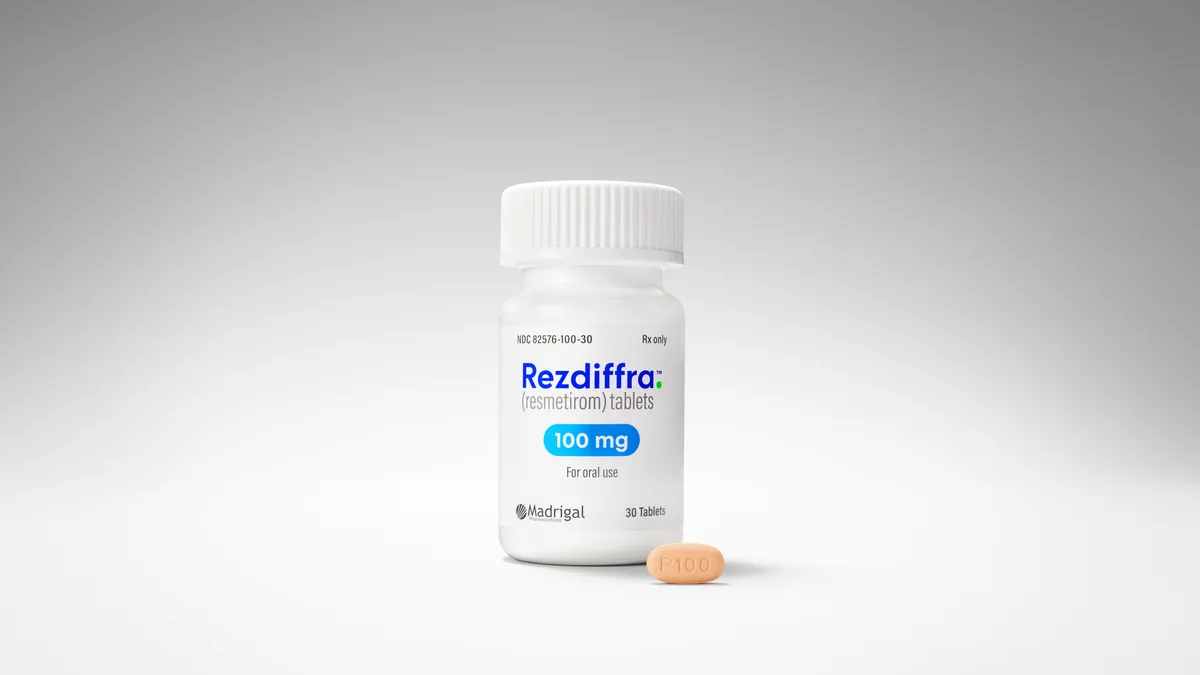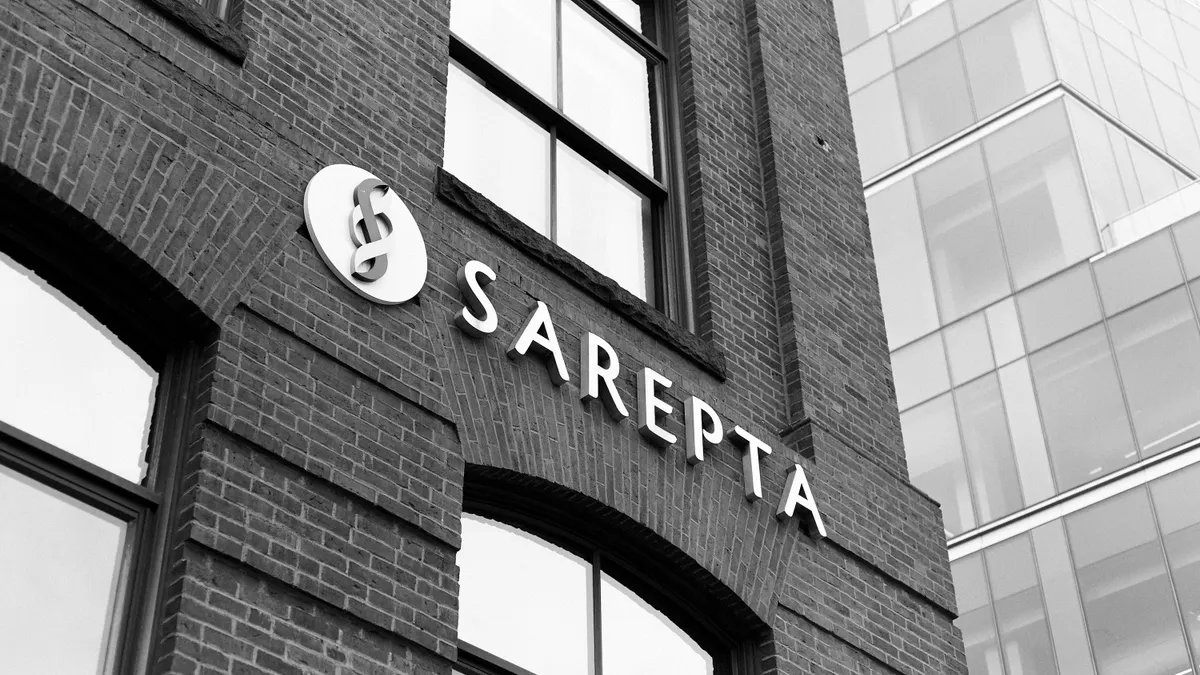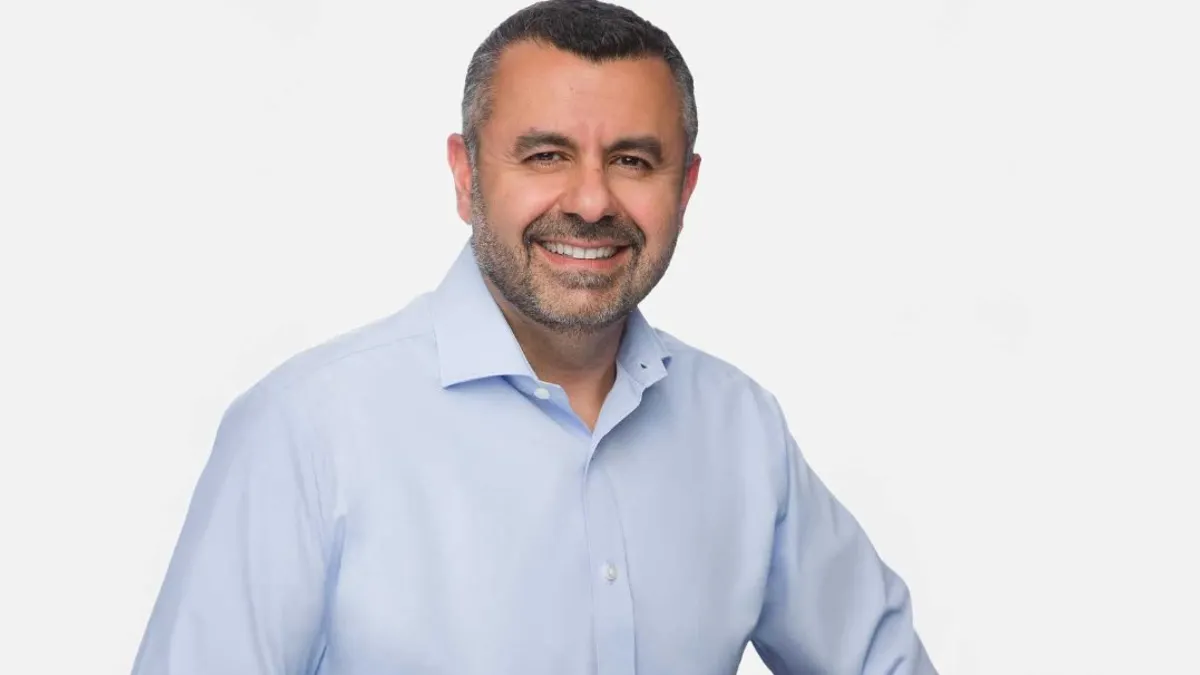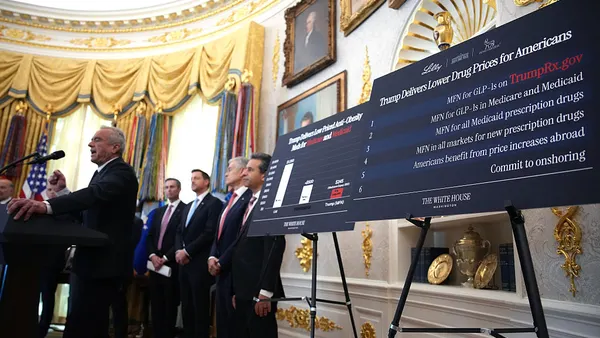The game is afoot in the obesity space as GLP-1 rivals Eli Lilly and Novo Nordisk take their showdown to a new level.
Lilly revealed in a first-quarter earnings report last week that it now has a 53% share of the GLP-1 market, overtaking Novo for the first time. The pharma giant also reported a 45% increase in revenue during the first three months of the year, bringing in nearly $13 billion. Zepbound, its tirzepatide medication designated for obesity and a recent sleep apnea indication, brought in $2.3 billion during the quarter, while the Type 2 diabetes version Mounjaro raked in $3.8 billion.
Despite this huge growth, Lilly’s stock price tumbled last week after the company downgraded its earnings per share expectations for the year. However, its 2025 revenue guidance remained unchanged from estimates released in February.
Additionally, Novo made moves that impacted Lilly’s share price.
The Danish drugmaker announced new telehealth partners to expand its direct-to-consumer reach and cash-pay offerings, and scored a triumph over Lilly with one of the nation’s largest pharmacy benefit managers.
At the same time, both pharmas are riding a little higher since the FDA pulled the plug on compounded GLP-1s in April. The copycat versions offered patients a cheaper alternative to Lilly and Novo’s name-brand obesity meds while they were in shortage, which has since been resolved. While Lilly is tying up loose ends by suing four telehealth companies that were still selling now-illegal compounded tirzepatide last month, the long-fraught situation is largely coming to end for now.
With compounders out of the way, Lilly and Novo have their sights set squarely on one another as they clamor for market dominance through expanding DTC platforms, new indications and next-generation GLP-1s.
A PBM win
The same day Lilly released its first-quarter earnings, Novo announced that its obesity GLP-1 Wegovy will be the preferred drug of CVS Carmark’s standard formulary starting July 1.
The deal is a win for Novo as both pharmas have faced an uphill battle getting insurers on board with coverage of GLP-1 drugs, which carry a roughly $1,000 per month list price. The arrangement with CVS will give Novo a huge boost by increasing access to Wegovy for CVS’ patients “at a more affordable price,” Prem Shah, CVS executive vice president and group president at CVS Health, said during the company’s earnings call last week. CVS did not publicize the exact estimated savings for Wegovy.
Lilly CEO and chairman David Ricks downplayed the impact, claiming he was not “surprised that this kind of thing was announced” on the call with analysts. He also highlighted tirzepatide’s growing market share and the expanding private market. Lilly and Novo both entered the DTC arena with self-pay options for lower-priced vials of their GLP-1 medications rather than self-injectable pen doses.
Other Lilly executives similarly minimized the PBM news, but refused to share how many patients receiving Zepbound were covered under CVS Caremake plans.
“For us, we will just continue to execute as strongly as we can and I think we have tremendous momentum in the marketplace,” Patrick Jonsson, Lilly’s president of cardiometabolic health, said during the call.
DTC pricing wars
In addition to the formulary decision, Novo will also offer a self-pay option for patients to receive Wegovy for $499 per month through CVS pharmacies. It’s the latest expansion for the pharma’s platform, NovoCare Pharmacy, which launched in March, and part of its growing arsenal of DTC offerings..
Novo partnered with telehealth company Hims & Hers, which previously sold compounded GLP-1s, with a “bundled” deal that includes all doses of Wegovy and a Hims & Hers membership for $599 per month. Hims & Hers already sells Lilly’s Zepbound and Mounjaro through its services, but Lilly noted that the pharma giant has no affiliation with the provider and does not offer its lower self-pay option on the platform. The out-of-pocket cost for Zepbound on Hims & Hers was listed at nearly $1,900 per month.
Novo also announced last week that it’s teaming up with Ro, another telehealth platform, to offer Wegovy at $499 per month. The deal comes about six months after Lilly partnered with Ro via its established DTC platform LillyDirect for Zepbound vials at a cost between $349 and $599 per month.
New drugs
Despite Novo’s recent plays to expand its DTC business and find favor with PBMs, some analysts aren’t optimistic the Danish pharma will retake pole position in market share, The Wall Street Journal reported.
Novo is also gunning to get ahead of Lilly in the oral GLP-1 market, and last month filed for an approval of its obesity pill. But Lilly is close behind with its oral obesity med, orforglipron, after announcing positive phase 3 data in April and a plan to submit for approval by the end of the year. Executives highlighted the oral pill’s potential during the earnings call last week.
“We know that … approximately 25% of the patients in the U.S. suffer from needle fear,” Jonsson said. “That positions us very nicely to be a first line incretin for both Type 2 [diabetes] and chronic weight management. The other benefits as well… we can scale and reach patients that is more or less impossible with only injectables. It provides a huge global opportunity for us with orforglipron and also from a manufacturing side, probably a significant benefit as well.”
Executives also noted that the oral options could potentially work as combination drugs for multiple indications in the future. Orforglipron was one bright spot in Lilly’s pipeline, but it also announced it pulled its application for a heart failure indication for tirzepatide after the FDA said more trials were required. Lilly said additional data from other trials may support resubmission.



